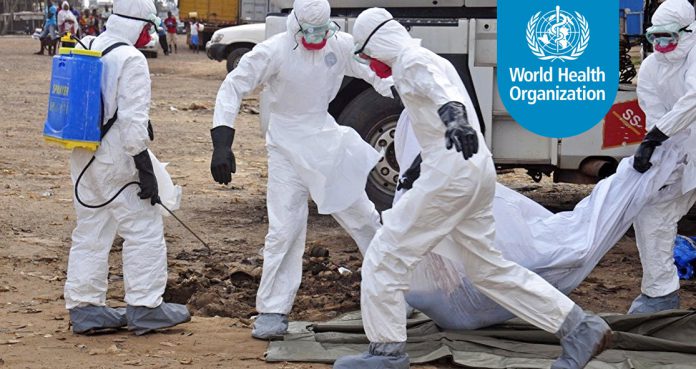Ebola outbreak that has raged in the eastern Democratic Republic of Congo (DRC) should get over within six months, according to the head of the World Health Organization.
It has been nearly seven months since the Ebola outbreak took place in the war-zone North Kivu province of DRC.
Tedros Adhanom Ghebreyesus, the WHO Director-General told reporters on Thursday that there were clear signs the virus spread was “contracting”. He warned that increased unrest and violence in the Ebola-affected area’s spread could be reversed.
He told reported in Geneva, “Our target is now to finish it in the next six months. It’s always good to plan beyond the horizon to prepare for any eventualities.” He is pretty optimistic that massive efforts have been taken to halt the outbreak.
The ongoing Ebola outbreak, which is the 10th outbreak in the DRC’s history, started in war-zone North Kivu in August 2018, which then spread to neighboring Ituri province.
According to WHO, the outbreak has claimed more than 580 lives out of approximately 1,000 believed to have contracted the disease.
Eastern DRC is a region that is rampant with rebel fighters who attacked numerous Ebola treatment centers, which has significantly complicated the security and response.
The medical charity called Doctors Without Borders (Médecins Sans Frontières) has also declared alert over increasingly unhealthy relations with local communities, which has fuelled the Ebola spread.
The international organization of French origin has also pointed out that 40 percent of deaths from the deadly virus in local communities than in Ebola treatment centers.
Last week, the medical charity’s chief Joanne Lieu told reporters in Geneva, “The Ebola response is failing to bring the epidemic under control.” However, Tedros denied Thursday that this was the case.
He said, “That’s not true. You cannot say it’s failing when the outbreak is contracting. It’s contracting.”
The WHO Director-General has stressed that the virus had been contained to North Kivu and Ituri province over the past seven months.
He said, “It hasn’t spread to other parts of the country and it hasn’t spread to neighboring countries.” He added, “The transmission had been halted in a number of places, including in Beni and Mangina. So the cases are now shrinking in certain geographic areas.”
Since January, the number of new Ebola cases has been decreased. Now, 25 new cases are reported each week, which was 50 at the beginning of the outbreak.
He also explained that that war, violence, unrest and community resistance are a challenge in Butembo and Katwa where the spread of Ebola is now concentrated. “I don’t want to undermine the risk, because it may again (resurge) if the security situation continues to deteriorate,” added Tedros, admitting that there could still be a chance of spread to other parts of DRC as well as neighboring countries.























